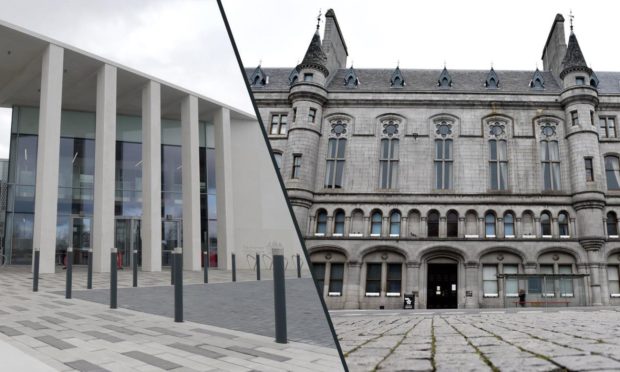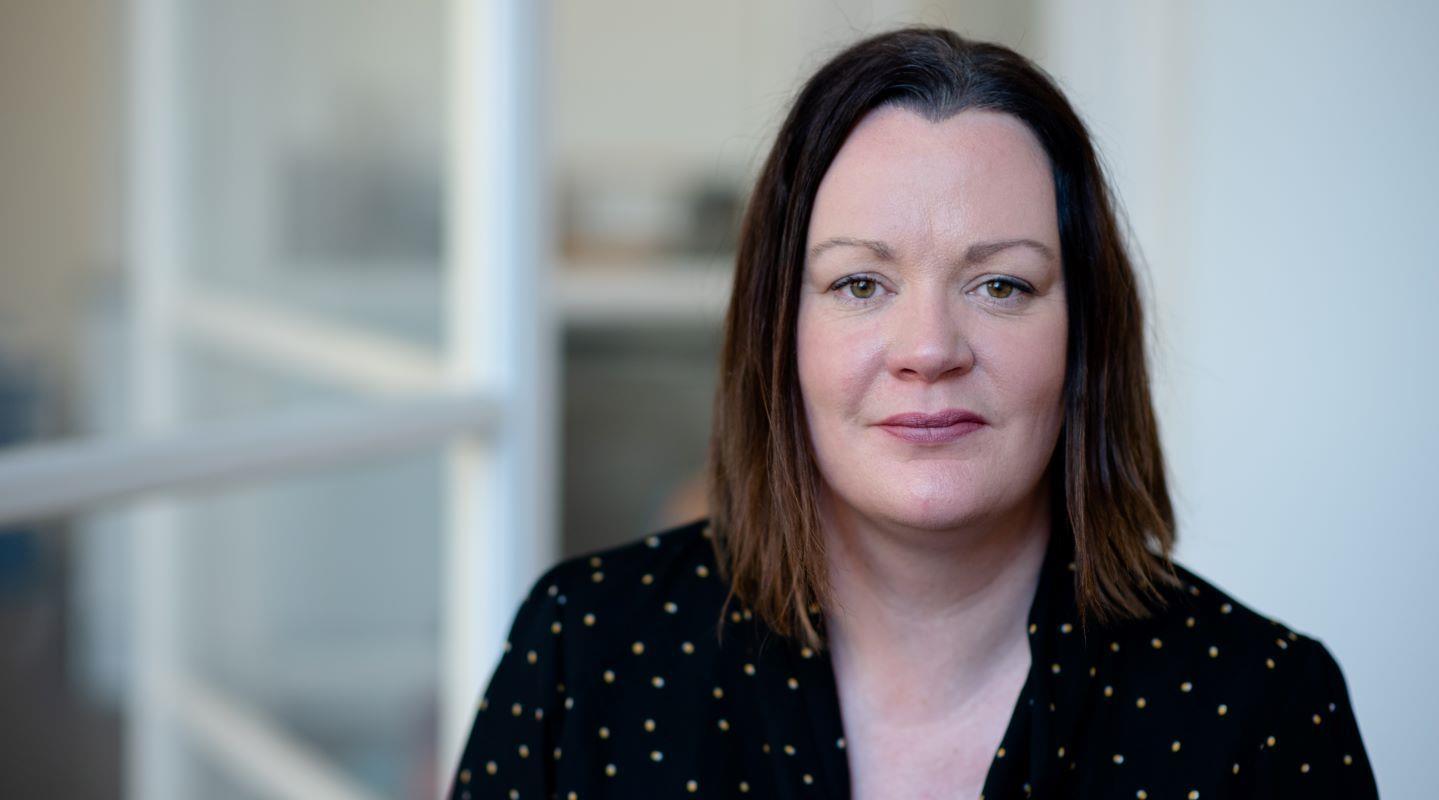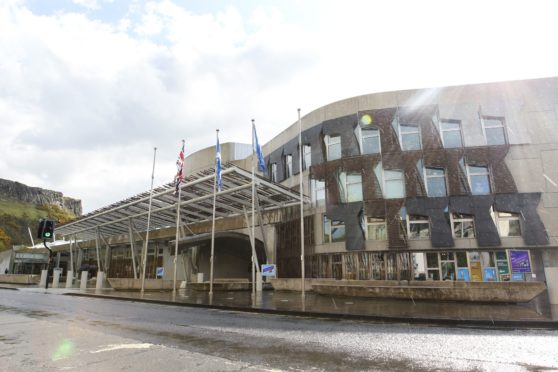A victims’ charity has spoken of how ‘damaging’ delays to justice can be after trials calling across the north and north-east dropped by more than 2,600 in a year.
And a north-east MSP has said the figures show the ‘alarming’ scale of the challenge faced as courts try to deal with backlogs caused by the Covid crisis.
The latest figures from the Scottish Courts and Tribunal Service reveal that across the sheriffdom of Grampian Highlands and Islands 2,190 summary trials called in 2020/21 compared to 4,831 the previous year.
And 5,237 cases were concluded, but in 2019/20 this figure was 8,386.
‘Concerns about the impact of trial delays’
Kate Wallace, chief executive of Victim Support Scotland, said: “Throughout lockdown, we have continued to express our concerns about the impact of trial delays on victims and witnesses who are due to go to court.
“We have heard numerous accounts of people in this situation, leaving them with uncertainty. We should not underestimate how damaging this can be to their mental and physical health, causing further traumatisation.
“Victim Support Scotland continues to work closely with our partners in the justice and third sectors to highlight these issues, and to ensure that everyone takes the health and wellbeing of people affected by crime seriously.”
The organisation launched a new volunteer recruitment campaign at the start of the month, in preparation for an increase in court activity later on this year.
Ms Wallace added: “For anyone that has been affected by trial delays, we are here for them, and can provide free and confidential support. You can call us on 0800 160 1985.”
Trials scheduled has increased
There were 209 jury trials (solemn cases) called at sheriff court level compared to 345 the previous year. The figures also show 421 indictment cases were finished – a decrease on the 684 from the previous year.
However, the number of trials scheduled was higher at 4,290 for summary cases – that is those which do not need a jury, for 2020/21 compared to 2,434 in 2019/20.
In all criminal courts in Scotland 46,159 cases were concluded in 2020/21. This is almost half the volume of those in 2019/20.
‘Crime hasn’t stopped in pandemic’
In Aberdeen 948 trials called in 2020/21 compared to more than 2,302 the previous year. There were 194 jury trials called, while in 2019/20 this figure was 240.
Reflecting the backlog, the number of trials scheduled at Aberdeen Sheriff Court in 2020/21 was up – 2,083 compared to 1,200 the previous year.
Scottish Conservative north-east MSP Liam Kerr said: “These figures highlight the huge and alarming scale of the challenge facing courts.
“Crime hasn’t stopped because we’re in a pandemic while courts haven’t been given enough resources from the Scottish Government to deal with the subsequent backlog.”
He added: “It’s disappointing to see such a drastic reduction in trials being called, particularly for the victims who are now having to go through the additional pain and trauma of having to wait far too long.
“The wheels need to keep turning for the sake of these victims and their families who deserve to have their needs met.
“The statistics show that the situation facing our courts has spiralled out of control under the SNP Government’s watch and this needs to be rectified.”
‘Focus on most serious trials in lockdown’
Meanwhile, at Inverness Sheriff Court 316 summary trials called in the past year compared to 755 the year before.
For solemn business 14 trials called, where it was 56 in 2019/20.
The total of scheduled summary trials for 2020/21 was 916 compared to 558 the year before. For solemn trials this was 11 in 2019/20 and 36 for the past year.
The Scottish Courts and Tribunal Service (SCTS) says sheriff and jury trial business is back to pre-covid levels as a result of the establishment of remote jury centres.
It meant 197 sheriff and jury trials across the country could proceed in the latter part of 2020/21.
SCTS executive director court operations, David Fraser, said: “Our court buildings continue to operate in accordance with guidance from Public Health Scotland to safeguard our staff, judiciary and court users.
“When lockdown restrictions were in place, the criminal courts focused on the most serious trials, with the majority of summary trials in the Sheriff Court and Justice of the Peace Court being adjourned.
“The High Court continues to operate at pre-Covid levels and with the roll-out of remote jury centres now complete we can see Sheriff Courts making strong progress.
“The excellent collaboration across the judiciary, justice organisations, the legal profession and the third sector has helped get court business back on track and this will remain crucial in planning for the recovery programme commencing in September.”
‘Significant’ challenges for justice system
Discussions are set to take place in the Scottish Parliament next week as to how a “faster, fairer and more effective” justice system can be achieved.
Court capacity will be increased from September along with an expansion of the remote jury centre programme, the Scottish Government says.
A Scottish Government spokesman said: “The justice system in Scotland is facing significant challenges, as is the position in England and Wales.
“To tackle backlogs built up while necessary public health restrictions have been in place, we have committed to investing £50 million this year to the Justice Recover, Renew, and Transform (RRT) programme.
“This will drive further reform, including greater use of digital tools and improved support for victims and witnesses.
“We have been working hard to mitigate the impact of the Covid pandemic – with most civil work being dealt with online or virtually and the establishment of innovations such as remote jury centres in cinemas for the most serious criminal trials.
“In addition, we will see an increased court capacity from September 2021, which includes the expansion of remote jury centres and a daily increase of 4 additional High Courts, 2 additional Sheriff Solemn Courts and up to 10 Sheriff Summary Courts.”



